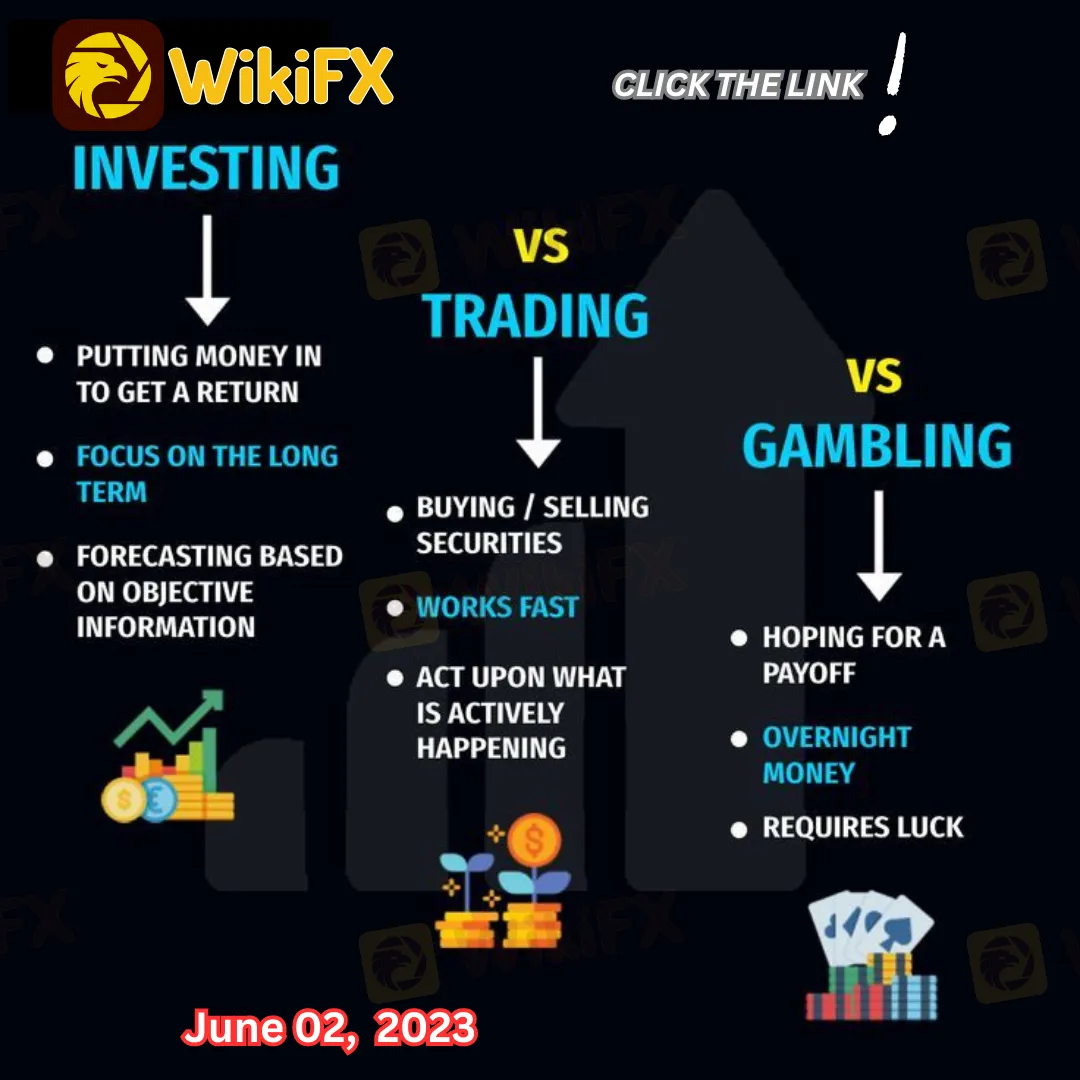简体中文
繁體中文
English
Pусский
日本語
ภาษาไทย
Tiếng Việt
Bahasa Indonesia
Español
हिन्दी
Filippiiniläinen
Français
Deutsch
Português
Türkçe
한국어
العربية
Trading V.S Investing
Abstract:Investing is about buying and holding securities for larger returns over time, while trading is more short-term, actively buying and selling securities to take advantage of the market's ups and downs.
When you invest, you buy and hold securities with the expectation of a return in the future, while when you trade, you buy and sell securities frequently in an attempt to profit from fluctuations in the market.
The catch is that long-term stock ownership is compatible with short- and long-term trading. That's why trading windows exist, folks! Shorting a security allows us to profit from shorter-term trends even in a bull market. Even more so when it's been overbought and is overdue for a correction.

But that we have to wait for another piece. For the time being, let us elaborate on the distinction between investing and trading, especially for those who are new to the field or who simply wish to learn how to dominate the market. Raise your game, people!
First, when you invest in stocks, you intend to hold on to the shares you purchase for an extended period of time. In other words, you are betting on the success of the company in the future. Trading, on the other hand, entails stock purchases and sales within a shorter time frame, typically within a day or a number of days and weeks. Trading's point is to capitalize quickly on fluctuations in stock prices. Cash flow is the primary goal of trading. So, once again, you can short your preferred company while also holding shares in your long-term portfolio.
Time commitment is another major distinction between investing and trading. You need to keep an eye on the company's finances, performance, and reaction to market shifts if you want to succeed as an investor, so be prepared to put in more time and effort. Market trends, technical indicators, and news that could affect stock prices are more important considerations in trading.
In terms of investment strategy, Only put money into companies that have high hopes for. Examine their foundations, their goals, and on occasion, when in the mood to show off, even you buy something from them. Because both an investor and a trader, We supplement our research with technical analysis in order to improve our entries.
Where we can find these discounted stock options? When stocks have reached a level of strong support, we use levels and wait for days of selloffs. It's like finding a great deal at an upscale department store. Using 100, 150, or 200 day moving averages as entry points is a common practice for when trading daily or weekly.
The stock market can be even more exciting than a college frat party, so make sure you're well-prepared before investing. The stock price can always go down, but long-term investors shouldn't let that worry them.
We really hope you found this article both informative and enjoyable. Message us if you need clarification on anything.
Disclaimer:
The views in this article only represent the author's personal views, and do not constitute investment advice on this platform. This platform does not guarantee the accuracy, completeness and timeliness of the information in the article, and will not be liable for any loss caused by the use of or reliance on the information in the article.
Read more

CySEC Revokes UFX Broker Licence as Reliantco Halts Global Operations
The Cyprus Securities and Exchange Commission (CySEC) has officially withdrawn the Cyprus Investment Firm (CIF) licence of Reliantco Investment Limited, the operator of UFX.com. This decision followed a six-month period during which the company failed to provide any investment services or perform investment activities.

Elon Musk Sparks Debate Over Presidential Power and Federal Reserve Independence
Elon Musk has voiced his support for the controversial idea that United States presidents should have a role in shaping Federal Reserve policies. This endorsement aligns with recent remarks from President-elect Donald Trump, who has hinted at revisiting the central bank's independence, a long-held tradition in the nation's financial governance.

Consob Sounds Alarm: WhatsApp & Telegram Users Vulnerable to Investment Scams
Italy's financial regulator, Consob, has raised alarms over an increase in fraudulent schemes targeting investors through mobile messaging platforms such as WhatsApp and Telegram.

Crypto 101: Coins vs Tokens
For those new to the world of cryptocurrency, terms like "coin" and "token" may seem interchangeable. However, understanding the distinction between these two digital assets is crucial for navigating the crypto landscape. Both coins and tokens serve as integral components of blockchain ecosystems, yet they differ in their functionalities, use cases, and the technologies underpinning them.
WikiFX Broker
Latest News
BSP Shuts Down Uno Forex Over Serious AML Violations
ACY Securities Expands Global Footprint with South Africa Acquisition
Tokyo Police Arrest 4 for Unregistered FX Trading Scheme
Rupee gains against Euro
WikiEXPO Global Expert Interview: The Future of Financial Regulation and Compliance
DFSA Warns of Fake Loan Approval Scam Using Its Logo
Consob Sounds Alarm: WhatsApp & Telegram Users Vulnerable to Investment Scams
CySEC Revokes UFX Broker Licence as Reliantco Halts Global Operations
Axi Bids AUD 52M to Acquire Low-Cost Broker SelfWealth, Outbidding Competitor Bell Financial
Crypto Influencer's Body Found Months After Kidnapping
Currency Calculator


